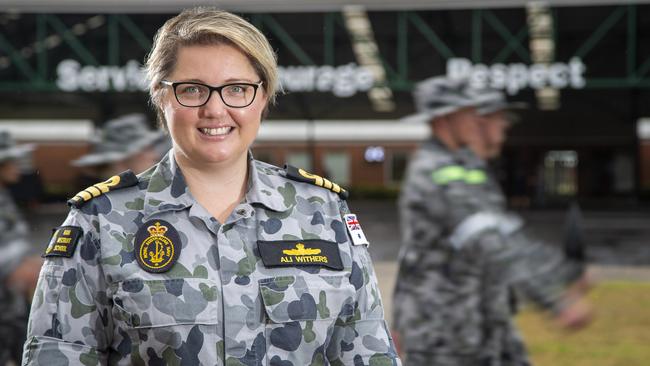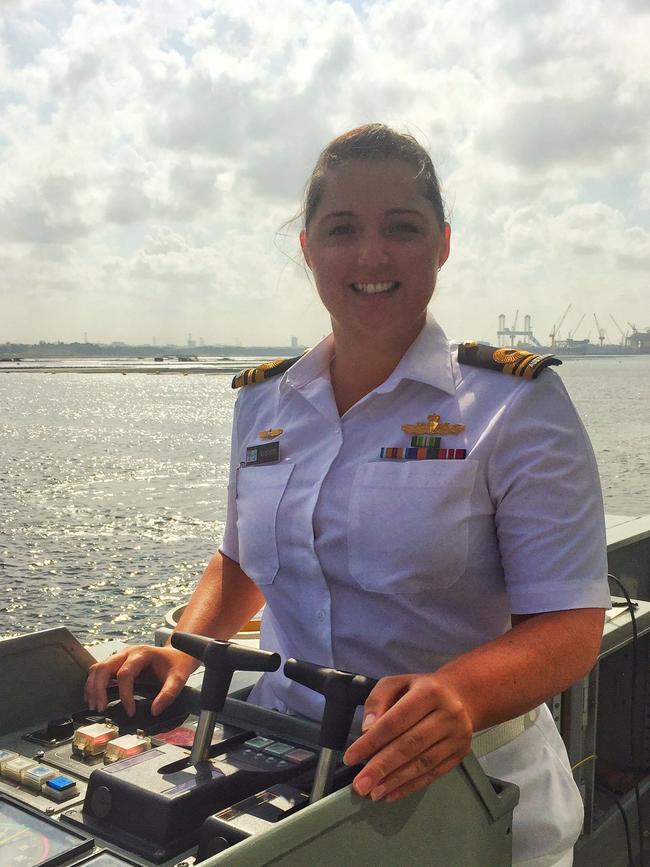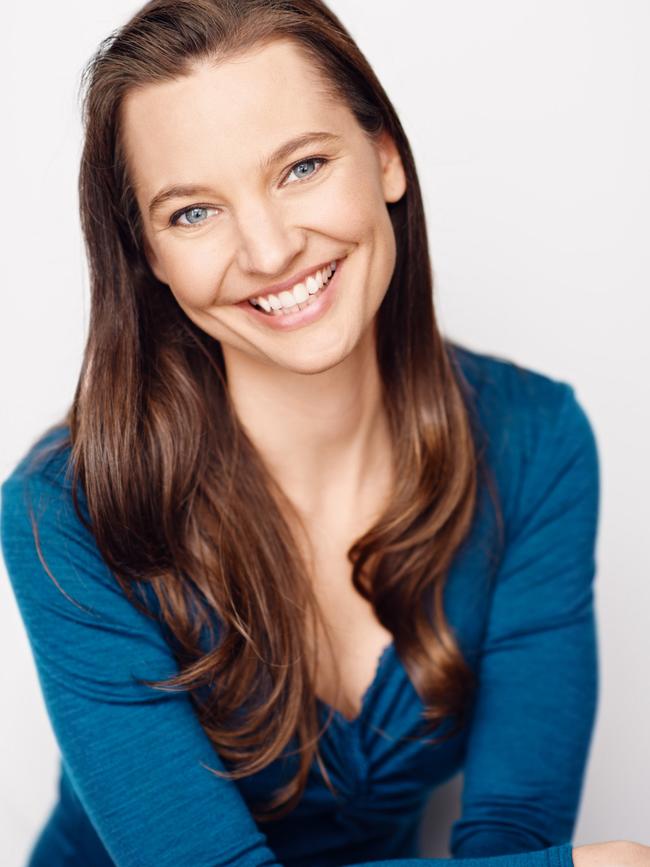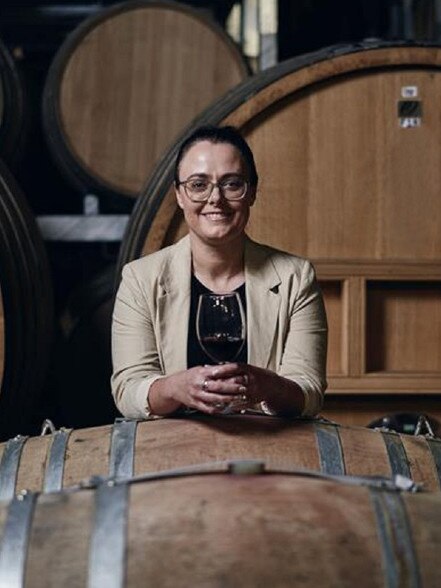IWD: Commander Alisha Withers on female progression and equity at Royal Australian Navy
Aussies have reacted to claims made by an Australian Navy commander who feels quotas in the workplace work for women and the nation.
SmartDaily
Don't miss out on the headlines from SmartDaily. Followed categories will be added to My News.
Commander Alisha Withers may already be one of the Royal Australian Navy’s senior officers, but she’s still climbing with even higher views in sight.
Those higher aims are not only for her own career progression, presently serving as a Commanding Officer in the Navy Recruit School, but for other women wanting to join the Navy or already in service.
“There isn’t a single job in the Navy that isn’t open to a woman, and we do equality really well,” Withers says.
“Everyone here is treated equally, with women expected to do everything the men do.
“I’ve noticed lately there’s a shift at the senior level to recognise inequity though, and to recognise that we’re not all at the same starting point.”
See what Aussies are saying below and have your say.

It’s an issue close to her heart, being keenly aware of the difference between equality and equity.
“I don’t think a lot of people know what equity is,” she says.
“For me, equality is about having the same opportunities, but equity is about recognising that, because of our environment, perhaps we’re not all at the same starting point and on an equal footing.”
She believes quotas would be a good start. Presently, Navy personnel comprise 23.9 per cent women, with a target to reach 25 per cent by 2025.
“I think there’s a mistaken perception that quotas are about putting someone less worthy in a job because they’re a woman, but I see them as a way to search harder for the right people,” she says.
“Quotas force us to search out the people who’d be amazing in those jobs but may not have the confidence to apply for them. That’s where a situation of inequity comes in. Women often need to be championed.”

Though her parents served in the Navy, Withers, 39, had no interest in joining up. It was only when she had to choose a career path after completing school that her need for adventure and variety led her to the Navy, joining at 18.
“In my whole career, I’ve never felt like my gender was an issue, because every job has been available to me even though, as a woman, I was in the minority,” she says.
“I’ve prided myself on my professionalism and ability to pursue what I wanted to do. The next job for me will be back out to sea and in command. I miss it. The first time I was in command was on a patrol boat doing border protections. My crew didn’t give a damn what my gender was. They just needed me to keep them safe and be the best I could be at my job.”
NEW GUARD
The campaign theme for this year’s International Women’s Day is #EmbraceEquity, recognising the equal opportunities aren’t enough when people start from different places. True inclusion requires a cultural shift which Women at Work author and gender expert Anneli Blundell believes may only be two generations away.
While some are ready for change now and the majority could be easily swayed, she says there are still laggards.

“Once that old guard exits the workforce, taking their values and behaviours of 50 years ago with them, the middle majority will rise up with the new blood,” Blundell says.
“We shouldn’t be disheartened by the fact that we can’t capture everyone in a social movement so should stop wasting valuable effort trying to change people who won’t come with you. The young will come through, breaking rules and they see the writing on the wall.”
Deakin University professor of education Amanda Keddie says issues such as poverty, race, religion, where you live and health all affect women’s equity.
“The concepts of equality and equity aren’t the same,” Prof. Keddie says.
“Equality is associated with access and opportunity, providing equal resources to all so women can be political leaders or play AFL but it doesn’t focus on changing the structures that precluded women in the first place or that we don’t encourage men to play netball, for example.
“Equity is more about social justice and recognising that society is organised in unequal ways so it’s about removing those economic and broader barriers.”

WORK IN PROGRESS
Accolade Wines global wine director Helen McCarthy says she’s the only female director of a major wine company in Australia and, while she’s never experienced inequality, she says full equity has yet to be achieved.
“The industry is still working towards equity and I’m not saying we’re there yet but it’s front of mind,” McCarthy says.
“In my first job interview in 2000, there were two senior winemakers who were both males. One of them asked me where I wanted to be in five years, and I said ‘In your job’.
“That’s why I got the job. He thought that was great. Some of those senior winemakers were on board with change and they may be nearing retirement age now but they’ve been strong mentors and role models, which is growing even more now with younger generations.”
More Coverage
Originally published as IWD: Commander Alisha Withers on female progression and equity at Royal Australian Navy




